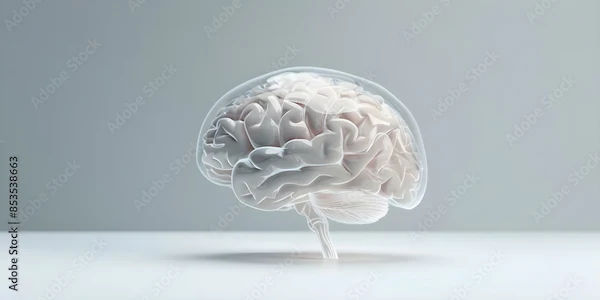Transient Global Amnesia: Understanding Sudden Memory Loss
Experiencing sudden memory loss? Learn about Transient Global Amnesia (TGA), its causes, symptoms, and recovery process. Understand when to seek medical help.

Written by Dr.Sonia Bhatt
Last updated on 3rd Jul, 2025

Introduction
Imagine you wake up one day and you are unable to recall where you are, how you got there, or even what day it is. Seems scary? Now, imagine this happening suddenly but only for a short period. This is actually a condition called Transient Global Amnesia (TGA). It is a temporary but profound loss of memory.
Although you may think of it as a medical emergency, it is generally harmless and resolves on its own. But if you or someone you know has experienced this, then you should have a clear understanding of what TGA is, why it happens, and what you can do about it.
What is Transient Global Amnesia?
Transient Global Amnesia (TGA) is a condition in which you experience a sudden episode of memory loss. You will experience this memory loss only for a few hours. During this time, you may repeatedly ask the same questions, forget recent events, and be unable to form new memories. But, you will still have your language skills and ability to perform daily activities.
One of the major signs of TGA is that it is temporary. Once the episode subsides, your memory function gradually returns to normal. The condition will not leave you with any long-term cognitive impairment. It does not affect your intelligence, personality, or motor functions.
Symptoms of Transient Global Amnesia
You will find it difficult to identify TGA as it mimics other neurological conditions. If you or someone close to you experiences the following symptoms, it could be TGA:
Sudden and severe memory loss: You are unable to remember recent events or form new memories.
Repetitive questioning: You find yourself asking the same questions repeatedly, even after your question has been answered.
Preserved personal identity: While you still know who you are, you may not remember where you are or why.
No loss of consciousness: You are fully aware and responsive.
No other neurological symptoms: Your speech, movement, and recognition of familiar people is the same as before.
You may experience TGA episodes for 1 to 12 hours. You may and rarely experience an episode that lasts more than 24 hours.
What Causes Transient Global Amnesia?
The exact cause of TGA isn’t fully understood. Some researchers think it’s related to a temporary disruption of blood flow to your brain. But, some other experts believe that it is related to migraines or even emotional stress.
Vascular Issues: One theory suggests that you may experience TGA due to a temporary reduction in blood flow to the parts of your brain that is responsible for memory.
Migraines: Some researchers think that TGA is a type of migraine aura. During migraine aura, your brain experiences temporary changes without the headache.
Emotional Stress: Stress can trigger strange changes in your body and brain. You can experience TGA due to a sudden emotional shock or physical strain.
Physical Triggers: You may be at risk of TGA if you are into activities like swimming in cold water, intense physical exertion, etc.
Who is at Risk?
While you may rarely experience TGA, there are some factors that may increase your risk:
Age: TGA will rarely affect you during your younger days. However, your risk will increase once you are 50 to 70 years old.
Gender: You are slightly more likely to experience TGA if you are a woman.
History of Migraines: If you’ve had migraines in the past, you may be at a higher risk.
Recent Physical or Emotional Stress: Both physical and emotional stress can make you vulnerable to TGA.
How is Transient Global Amnesia Diagnosed?
If you or a loved one experiences an episode of sudden memory loss, it’s important to visit or consult a doctor as soon as you can. While TGA won’t put your life at risk, it’s important to rule out chances of stroke or seizure.
Once you visit your doctor, they will perform a physical exam and go through your medical history. They might also order some tests, such as:
MRI or CT Scan: These imaging tests can help rule out your risk for other causes of memory loss such as a brain tumour or stroke.
EEG: An electroencephalogram (EEG) measures electrical activity in your brain. It can help identify if you have had a seizure.
Blood Tests: These will assess your risk of infections and other conditions that may be responsible for your memory issues.
Once your doctor has ruled out the risk of other conditions, they may diagnose TGA based on your symptoms and the nature of your episode.
Is Treatment Needed?
Your doctor is unlikely to suggest a specific treatment for TGA. You will recover fully within 24 hours. But there are some things that you should expect during and after an episode:
During the Episode: If you’re with someone experiencing TGA, you should stay calm and reassure them. You should not overwhelm them with too much information. Rather, you should gently guide them if they seem disoriented.
After the Episode: Once your memory loss subsides, you’ll likely feel back to normal. However, you should still follow up with your doctor to know what happened and whether you need to undergo any tests.
Prevention: While you may not be able to prevent TGA, you can still try to reduce your risk by lowering stress, staying physically active, and maintaining a healthy lifestyle.
Can TGA Happen Again?
You will likely experience TGA only once. But some people experience a second episode as well. Although there are no known preventive measures, you can reduce your risk by avoiding excessive physical exertion and emotional stress.
Differentiating TGA from Other Conditions
You should know the difference between TGA and other serious conditions with similar symptoms.
| Condition | Key Differences from TGA |
| Stroke | Sudden memory loss but with slurred speech, facial drooping, or limb weakness. |
| Seizure | Loss of consciousness, confusion, and involuntary movements. |
| Dementia | Progressive and permanent memory decline rather than a sudden, temporary episode. |
| Transient Ischaemic Attack (TIA) | Short term stroke-like symptoms with possible speech and motor issues. |
Living with TGA: Should You Be Concerned?
If you experience TGA, it is understandable to feel alarmed. But, you shouldn’t worry as it is generally harmless. But if you experience repeated episodes of memory loss episodes, then you should meet a doctor to rule out other conditions.
When To Seek Help
While TGA itself isn’t dangerous, losing memory suddenly can be a symptom of more serious conditions. You should consult a doctor immediately if
You experience memory loss for more than 24 hours
You having other symptoms such as weakness, numbness, or difficulty in speaking
You experience loss of consciousness
You are confused or have a severe headache
You should not ignore these symptoms as they could be due to stroke, seizure, or any other serious conditions.
Conclusion
If you experience Transient Global Amnesia, it may be unsettling but not life-threatening. Your memory function will return to normal within a few hours without leaving any lasting effects. If you or someone you know experiences sudden memory loss, then you should not panic. You should consult your physician for a medical evaluation to rule out your risk of more serious causes. Once you have understood all the aspects of TGA is crucial, you will be able to navigate your experience with confidence and reassurance. If you have any concerns about memory loss, then you should not hesitate to consult your doctor.
Consult Top Neurologists
Consult Top Neurologists

Dr. Aditendraditya Singh Bhati
Neurosurgeon
18 Years • MBBS(2004), DNB Neurosurgery(2014); MNAMS; Fellow Neuroendoscopy
Delhi
Apollo Hospitals Indraprastha, Delhi
(100+ Patients)

Dr. Sarthak Mehta
Neurologist
6 Years • MBBS , MS Mch ( Neuro )
Bengaluru
Apollo Clinic, JP nagar, Bengaluru

Dr. Ganeshgouda Majigoudra
Neurologist
10 Years • MBBS, MD ( GENERAL MEDICINE) DM (NEUROLOGY)
Bengaluru
Apollo Clinic, JP nagar, Bengaluru
Dr. Annakula Ramu
Neurologist
7 Years • MBBS, MD General Medicine, DM Neurology
Jagtial
Sairam Neuro and Children Hospital, Jagtial

Dr Rajashekar Mummadi
Neurologist
3 Years • MBBS, DNB General Medicine, DRNB Neurology
Hyderabad
Dr Ram's Neuro Clinic, Hyderabad
